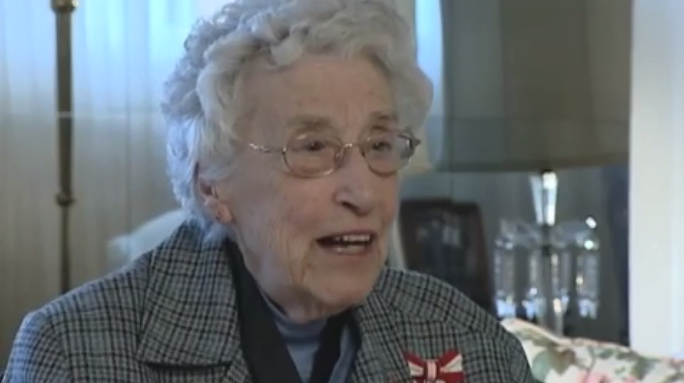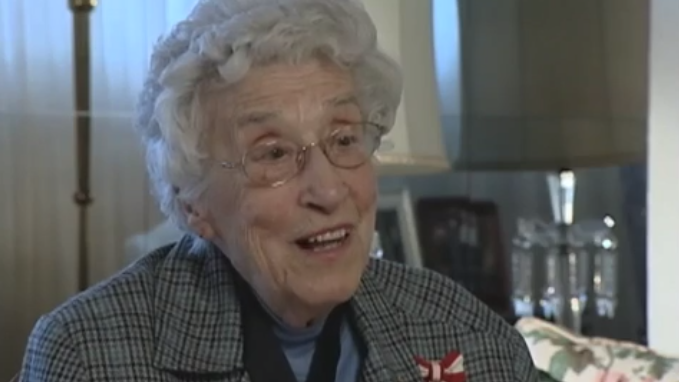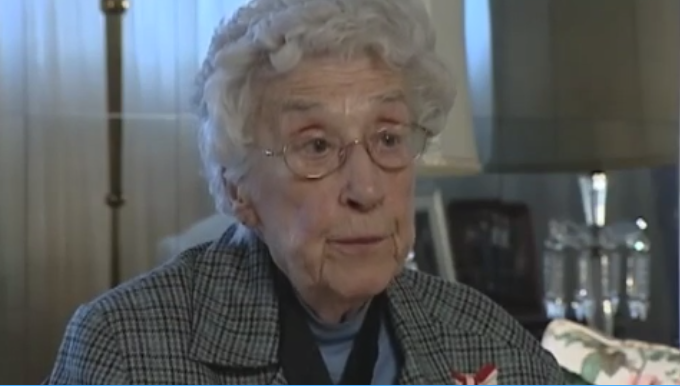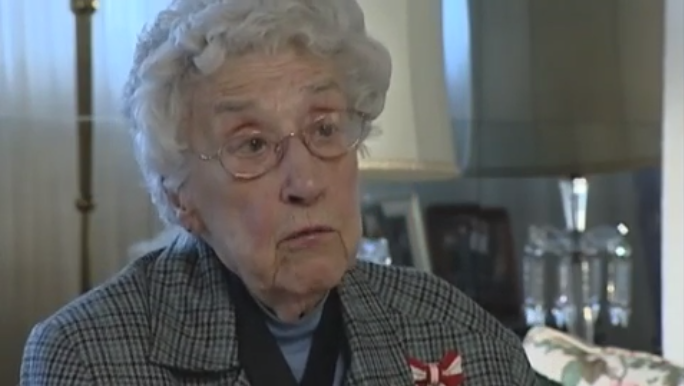You did your assignments, which were just like there would be in
any hospital. Maybe you were in charge of penicillin, maybe you
were in charge of dressings, maybe you were in charge of just
the pill part of it you know or else helping, just helping
patients like, encouraging them. And you did that all the time
because you know at night when you hear patients crying it’s
pretty awful and they want their mothers, this is what they want
and that’s where I think the sisters did a lot of good because
they take time, talk to the chap maybe, give them a back rub,
light a cigarette. If he didn’t have a hand that could hold a
cigarette maybe for him or one of his buddies always did that,
you know. They helped the ones who had a hand and the ones who
didn’t have hands helped the ones, you know, it was just
wonderful. But I think they looked on us maybe as sisters,
well you know what I mean, but as part of a family and I think
that maternal instinct that women have played a very big part in
those especially the young, young soldiers because they were so
far from home and you know maybe hadn’t had any mail for a month
and they’d be wondering about their family and this sort of
thing. You could talk to them and you could be treating them at
the same time, you know. You weren’t wasting any time, but
just that little few minutes extra to chat, maybe went to
sleep right away after you know. It was so fulfilling.
There was no glamour about it at all. It’s just blood and guts
as the boys say, you know. Really, it’s hard, slogging.
There’s nothing, not the least thing glamourous about it or...
I think we were all people doing jobs that were assigned to
us. The infantry fought on their legs with their gun. The
engineers built bridges and roads. The service people
brought us all the equipment we needed. The reamy repaired
everything. Everybody had a specific function depending on
what units they belonged to, and so the whole total effort came
together and I think that was what was the wonderful thing
about it and I don’t think you see that in movies. I don’t know
because as I said, I haven’t really seen many. But the total
effort combined was I think what paid off, of everybody doing
their best. You couldn’t help but think of those guys going out
day after day with their life on the line and living in little
slit trenches that wouldn’t give you any protection at all.
We were fortunate. We were cared for. We were looked after.
We respected what they did and why they were doing it and we
were so grateful when they were successful. There was a very
deep respect for the nurses. The sisters were their friends and
we weren’t as, maybe as strict you know as their male officers
that they knew. They knew we were officers. They respected us
for that, but I think there was a, there was a real tender
feeling towards the nurses because they were the closest
thing to home that they had.







